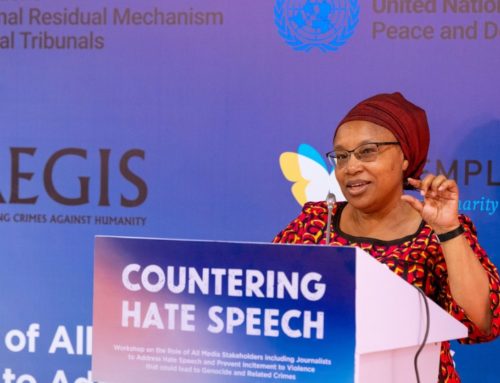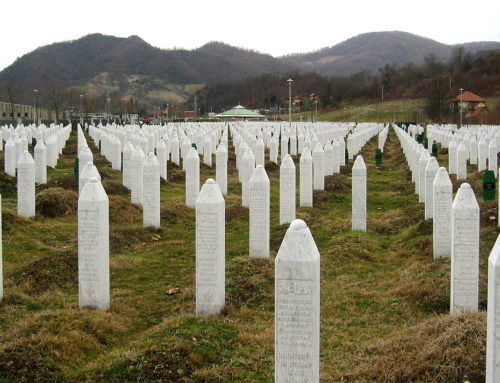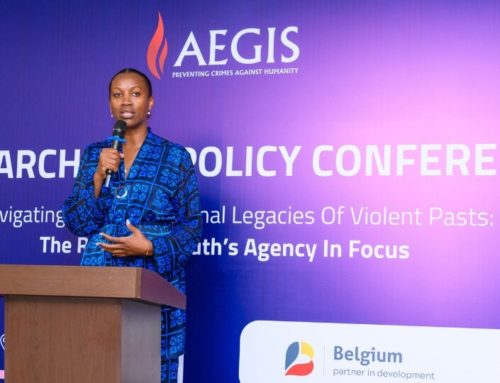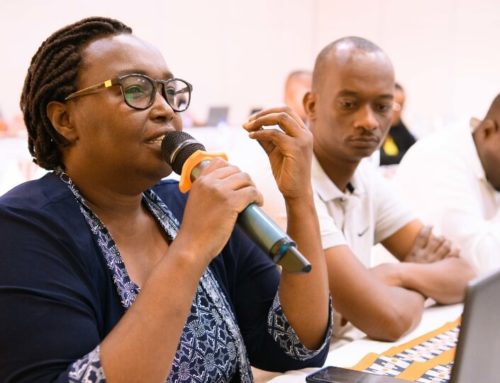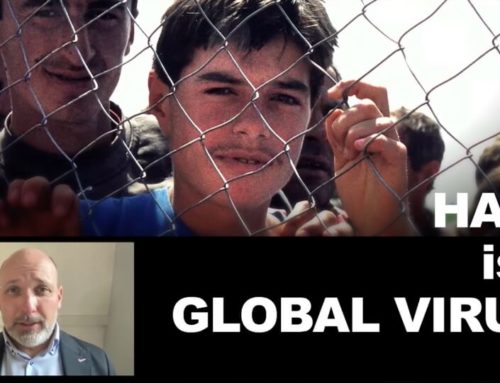 7 Feb 07 – Professor Eric Markusen, one of the world’s most eminent genocide scholars, died of cancer on Monday 29 January. He was 60 years old. In recent years, Professor Markusen had worked closely with the Aegis Trust. He participated in the joint Aegis-Foreign and Commonwealth Office conference on genocide prevention in 2002, which for the first time brought together policy makers, academics, survivors, activists and field specialists to consider practical ways to move genocide prevention from the field of study to the field of action. Participating in two subsequent Aegis conferences – one on nationalism in 2002, another on genocidal mentalities in 2003 – he also contributed a chapter to the book ‘Will Genocide Ever End?’, a joint publication by Aegis and Paragon USA.
7 Feb 07 – Professor Eric Markusen, one of the world’s most eminent genocide scholars, died of cancer on Monday 29 January. He was 60 years old. In recent years, Professor Markusen had worked closely with the Aegis Trust. He participated in the joint Aegis-Foreign and Commonwealth Office conference on genocide prevention in 2002, which for the first time brought together policy makers, academics, survivors, activists and field specialists to consider practical ways to move genocide prevention from the field of study to the field of action. Participating in two subsequent Aegis conferences – one on nationalism in 2002, another on genocidal mentalities in 2003 – he also contributed a chapter to the book ‘Will Genocide Ever End?’, a joint publication by Aegis and Paragon USA.
“Eric was an outstanding scholar, but beyond the formal relationship, he was also a personal friend,” says Dr James Smith, Chief Executive of the Aegis Trust. “The field of genocide studies and genocide prevention is much the poorer for his loss, which all of us feel deeply. Our thoughts are with his family at this sad time.”
Dr Gregory Stanton, First Vice President of the International Association of Genocide Scholars, stated: “We have lost a great man; an inspiring leader; a passionate advocate for justice; a superb scholar; a great friend. Those of us who study and work against genocide have lost a brother.”
READ MORE
The following article by Ben Cohen, published in the Star Tribune, offers a brief insight into Professor Markusen’s life and some of his achievements.
Erik Markusen studied roots of genocide
Eric Markusen once said that the battleground of his youth, including the suicides of both his parents, answered in part why he became a scholar of genocide.Markusen, a Southwest Minnesota State University professor in Marshall and leading expert on genocide, died of pancreatic cancer in Marshall on Monday. He was 60.
Markusen’s quest to understand the genocidal mentality took him to death camps, former Soviet satellites, the killing fields of Cambodia, bombed villages of Croatia and Bosnia, the border of Ethiopia/Eritrea, and to Darfur.”He had to have his work be a tool for good in the world,” said longtime friend Greg Owen, consulting scientist at Wilder Research, St. Paul.For several years earlier this decade, Markusen was director of research for the Danish Center for Holocaust and Genocide Studies in Copenhagen.
Markusen’s mother struggled with schizophrenia all her life, and his father, who served in the Navy during World War II, was an alcoholic. They committed suicide during his high school years, according to an article in the Nov. 5, 2000, Star Tribune. Markusen spent time in boarding schools, one of which liberally doled out corporal punishment.”I just think that those experiences gave me a slightly heightened sense of vulnerability — how we all are vulnerable. Sort of a sense of ‘There but for the grace of God …’ ” Markusen said in 2000.
Markussen, a professor of sociology and social work for 17 years at Southwest Minnesota State, wasn’t deskbound, said Stephen Feinstein, director of the Center for Holocaust and Genocide Studies at the University of Minnesota. Markusen favored field research, visiting the scenes of genocides around the world. “He was really willing to go into a risky situation to get evidence,” Feinstein said. Markusen, knowing his cancer prognosis, recently went to work in Ethiopia for the Danish Center, returning to Marshall just before Christmas.
His work was used by the U.S. State Department and former Secretary of State Colin Powell in a presentation to the United Nations about Darfur.Markusen, the author of many articles and books on subjects such as genocide, nuclear warfare and strategic bombing, co-authored, with Harvard University’s Robert Jay Lifton, “The Genocidal Mentality: Nazi Holocaust and Nuclear Threat.” He is survived by his wife, Randi of Marshall; daughter Maria of Minneapolis; stepmother Jean Erickson of Rapid City, S.D., and brother Paul of Wayzata.Services are pending.

